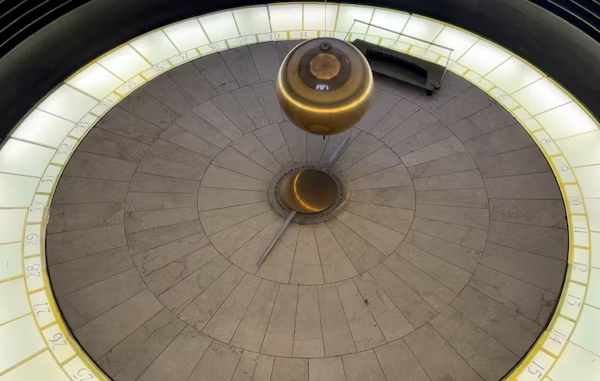In Singapore’s academically driven environment, few subjects cause as much concern among students and parents as Physics.
For many, Physics is not just another science subject; it is a discipline that requires a strong grasp of abstract theories, the ability to visualise processes that are not always visible, and the mathematical skill to translate those theories into workable solutions.
At the O-Level stage, where academic performance can determine future pathways in junior colleges, polytechnics, or even overseas opportunities, the pressure to excel can feel overwhelming.
Private tuition has become a popular solution for bridging the gap between what is taught in school and what students truly understand. A well-structured Physics tuition programme provides not just clarity in learning but also a sense of confidence and motivation.
With so many tuition centres and private tutors available in Singapore, however, it can be difficult to know where to begin.
This guide aims to walk parents and students through the process of choosing the right O-Level Physics tuition, highlighting what to look out for, the benefits to expect, and the key questions worth asking before committing to lessons.
Understanding the Need for Private Tuition

Source: Unsplash
Physics is unlike subjects that rely heavily on memorisation.
While a student may succeed in Biology by recalling processes, or in History by remembering timelines, Physics demands critical thinking.
A simple topic such as Newton’s Laws of Motion can become challenging because students are required not only to understand the principles but also to apply them in varied scenarios.
For instance, understanding why a stationary car begins to move when pushed, versus calculating the force required to accelerate it, involves different layers of thought.
Classroom teaching, while essential, is often constrained by time and large class sizes. Teachers have to ensure they cover the syllabus within the academic year, which leaves little room to slow down for students who may need extra guidance.
Moreover, many students are reluctant to ask questions in class for fear of holding others back or appearing ‘slow’.
This is where private tuition becomes invaluable. With focused attention, a tutor can identify specific misconceptions, such as why a student consistently confuses velocity with acceleration, and address them directly.
In addition, private tuition creates an environment where mistakes are seen as learning opportunities rather than failures.
When students are comfortable enough to experiment with problem-solving, they are more likely to build resilience and persistence, two qualities essential for mastering Physics.
Factors to Consider When Choosing a Tutor
Choosing the right tutor is not simply about finding someone with knowledge of the subject. It is about finding a person who can connect with the student, adapt their methods, and create an atmosphere where learning feels manageable and even enjoyable.
Here are some important factors to consider:
Qualifications and Experience
A tutor’s qualifications provide a starting point in assessing their suitability. Ideally, the tutor should have a strong academic background in Physics, with degrees or relevant certifications that demonstrate their expertise.
More important than paper qualifications, however, is their practical experience in teaching O-Level Physics specifically.
Tutors who are familiar with the Singapore Examinations and Assessment Board (SEAB) syllabus will know not just what to teach but how questions are typically framed in examinations.
Teaching Style
Every student learns differently.
Some are highly visual learners who benefit from diagrams and charts. Others need repeated practice through worked examples, while a few thrive on interactive discussions where concepts are debated and tested.
A good tutor will recognise these differences and adjust their teaching style accordingly.
If possible, arranging a trial class can be extremely helpful. During this session, observe how the tutor explains concepts, how they respond to questions, and whether the student feels comfortable engaging.
The right tutor should be able to explain complex topics, such as electromagnetic induction or wave interference, in simple, digestible terms without overwhelming the student.
Track Record
A tutor’s track record offers insight into their effectiveness. While every student’s journey is unique, patterns of improvement among past students can indicate a tutor’s strength.
Testimonials from parents and students can be particularly revealing, offering a glimpse into how lessons are conducted and the type of results achieved. Some tutors may also share anonymised progress reports showing grade improvements over time.
Availability and Location
Practical considerations matter more than many realise. If tuition is held in person, proximity is key; spending an hour commuting to and from lessons each week may reduce motivation and add unnecessary stress.
For online sessions, a reliable internet connection and the use of interactive digital tools, such as virtual whiteboards or simulation software, can make the learning experience smoother. Availability is another critical factor.
The tutor’s schedule should align with the student’s, and ideally allow flexibility around exam periods when additional sessions may be required.
Benefits of Private Physics Tuition
The advantages of private Physics tuition extend far beyond academic grades. While improved performance is often the most visible outcome, the long-term benefits are equally significant.
2. Focused weakness targeting: Students may excel in certain areas, such as optics, but struggle with electricity. Tuition allows for targeted lessons that prioritise these weaker areas rather than repeating what the student already knows.
3. Confidence building: Physics exams are often as much about confidence as competence. By practising past papers and receiving consistent feedback, students become more comfortable tackling unfamiliar questions.
4. Exam strategy development: Tutors can teach techniques such as identifying keywords in exam questions, structuring answers for maximum marks, and managing time effectively during papers.
In many cases, these benefits compound over time. A student who once dreaded Physics lessons can, with consistent support, discover genuine interest and even enthusiasm for the subject.
This change in attitude often influences performance in other subjects as well, creating a positive ripple effect.
Questions to Ask Potential Tutors
Selecting a tutor is an important decision, and asking the right questions beforehand can save time and effort later.
A few useful ones include:
This provides clarity on whether the tutor has direct experience with the syllabus and understands its unique demands.
Q. Can you provide references or testimonials?
Hearing from past students or parents can help set realistic expectations about the tutor’s style and effectiveness.
Q. How do you tailor lessons to individual students?
This reveals whether the tutor has a one-size-fits-all method or adapts lessons based on the student’s strengths and weaknesses.
Q. What materials do you use for teaching?
Some tutors rely heavily on textbooks, while others may incorporate practice papers, simulations, or self-designed worksheets. Knowing this helps students prepare mentally for the type of learning ahead.
Asking these questions not only clarifies the tutor’s capabilities but also demonstrates that you are invested in finding the best fit for the student.
Conclusion
Choosing the right O-Level Physics tuition in Singapore is not a decision to rush. It requires weighing the tutor’s qualifications, teaching style, track record, and practical factors such as availability.
The best tutor is not just someone who can recite formulas or solve equations quickly, but someone who can break down complex concepts, encourage curiosity, and nurture confidence in students who may initially feel overwhelmed by the subject.
With the right guidance, Physics can shift from being an intimidating hurdle to a subject that develops logical thinking, analytical skills, and problem-solving abilities, all qualities that benefit students well beyond their examinations.
A thoughtful choice today can make a lasting difference in a student’s academic journey, and for many families in Singapore, that journey often begins with T&T Learning Hub.
FAQs
How much does private O-Level Physics tuition typically cost in Singapore?
The cost can vary widely depending on the tutor’s qualifications and experience. On average, it may range from SGD 40 to SGD 100 per hour.
Is online tuition as effective as in-person sessions?
Online tuition can be just as effective, provided that there is a good internet connection and the tutor uses interactive tools to engage the student.
How often should a student attend private tuition sessions?
This depends on the student’s needs and goals. Typically, one to two sessions per week are sufficient, but this can be adjusted based on progress and upcoming exams.
With careful consideration and the right choice, private tuition can be a valuable tool in achieving academic success in O-Level Physics.

